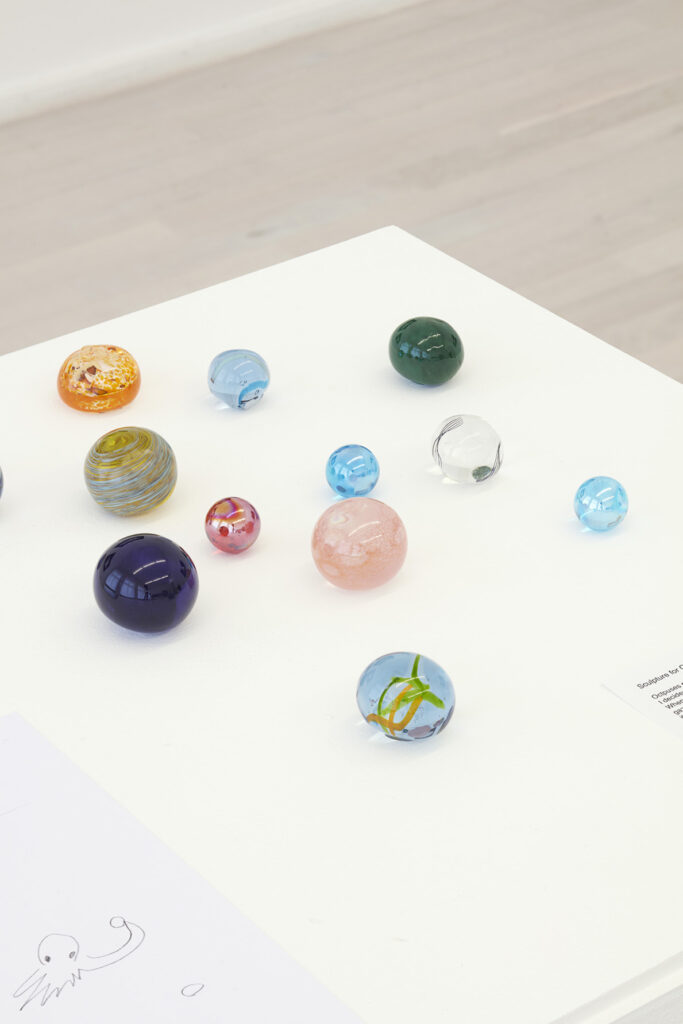
Shimabuku, Sculpture for Octopuses, 2010 (Installation detail, Photo: Nick Ash)
Octopuses find their homes in confined spaces. this makes them convenient to catch. In an early engagement of his with octopuses, Shimabuku would draw on ancient Mediterranean and Japanese fishing traditions, offering up vessels — amphoras, clay pots, vases — strung up on long lines of rope to unsuspecting octopuses for shelter . . . and pull them up for harvest.
In Sculpture for octopuses, he conceives a different kind of offering. “octopuses often pick up stones and seashells on the ocean floor. I decided to make some pieces of sculpture for them.” Instead of deceiving octopuses for human gains, he reverts to gifting octopuses. In the olden days — that of course still very much are with us — people would make offerings to the Gods and other higher powers to improve or avert their destiny; Shimabuku’s marbles and the way he delivers them are reminis- cent of such rituals. Such practices build on fearful trust (or hope) in powers that are more powerful than oneself and capable of controlling one’s fate. While they may also acknowledge the limitations of human power, they equally embody capitalistic relations of exchange, where we accept something in return for our investment and aim to bring those (external/superior) powers under control by coercing them into submis- sion to our will with glistening commodities.
But Shimabuku does not expect anything in return. His offering is provided for octopuses to enjoy themselves, to give them something they might relish in. Such extension of kindness and generosity across species-barriers does not only acknowledge the nonhuman as desiring individuals, with tastes and wishes and lives of their own. It also practices solidarity instead of coercing exploitation. In an age where our appropriation of natural resources is poised to leave a barren earth, what kind of fate do such offerings beseech?